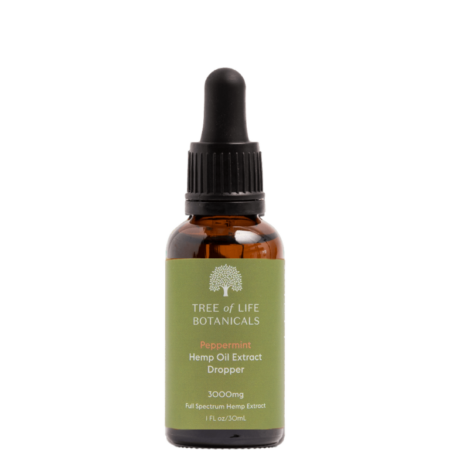The Impact of Immune Health on Female Health

As a woman, it's important to prioritize immune health. Our immune systems are complex and constantly working to keep us healthy, but sometimes they need a little extra support. In this article, we'll explore the impact of immune health on female health and discuss the benefits of adaptogenic mushrooms for immune support.
The Impact of Immune Health on Female Health
Our immune system plays a critical role in keeping us healthy. It defends against pathogens, including viruses and bacteria, and helps prevent chronic diseases like cancer and autoimmune disorders. A weakened immune system can lead to increased susceptibility to infections, slower healing, and chronic inflammation. In addition, hormonal imbalances can also impact immune function, making women more susceptible to certain diseases and infections.
Several factors can weaken the immune system, including stress, poor nutrition, lack of sleep, and sedentary lifestyles. Additionally, certain medications and medical conditions can also impact immune function.
Fortunately, there are steps you can take to support your immune system and improve overall health.
Boosting Immune Response with Adaptogenic Mushrooms
Adaptogenic mushrooms are a group of medicinal mushrooms that have been shown to have immune-boosting properties. These mushrooms work by regulating the immune system, improving the body's response to stress, and enhancing overall health and wellness.
One of the most well-known adaptogenic mushrooms is Reishi (Ganoderma lucidum). Reishi is rich in polysaccharides and triterpenes, which have been shown to have anti-inflammatory and immune-boosting properties. Reishi has been used in traditional Chinese medicine for centuries to enhance longevity, boost immunity, and improve overall health.
Another popular adaptogenic mushroom is Cordyceps (Cordyceps sinensis). Cordyceps has been used in traditional Chinese medicine for centuries to enhance athletic performance, increase energy levels, and improve overall health. Studies have shown that Cordyceps can improve immune function by increasing white blood cell production and enhancing the body's response to infections.
Other adaptogenic mushrooms that are beneficial for immune health include Chaga (Inonotus obliquus), Lion's Mane (Hericium erinaceus), and Turkey Tail (Trametes versicolor). Each of these mushrooms has unique properties that support immune function and overall health.
Incorporating adaptogenic mushrooms into your diet can be as easy as adding them to your morning coffee or smoothie. Many adaptogenic mushrooms are available in supplement form, making it easy to get the immune-boosting benefits without having to cook with them.
Other Ways to Boost Immune Response
In addition to incorporating adaptogenic mushrooms into your diet, there are several other ways to support immune health:
-
- Eat a balanced diet: A diet rich in fruits, vegetables, whole grains, and lean protein can help provide the nutrients your immune system needs to function properly.
- Get enough sleep: Lack of sleep can weaken the immune system, making you more susceptible to infections.
- Manage stress: Chronic stress can impact immune function. Finding ways to manage stress, such as meditation, yoga, or deep breathing, can help support immune health.
- Exercise regularly: Regular exercise can help improve immune function by reducing inflammation and increasing white blood cell production.
- Stay hydrated: Drinking enough water can help flush toxins from the body and support immune function.
- Avoid smoking and excessive alcohol consumption: Both smoking and excessive alcohol consumption can weaken the immune system, making you more susceptible to infections.
Conclusion
As women, it's important to prioritize immune health. A healthy immune system is critical for overall health and wellness. Adaptogenic mushrooms, like Reishi and Cordyceps, can be a powerful tool for boosting immune function and improving overall health. Incorporating these mushrooms into your diet, along with lifestyle changes like getting enough sleep, managing stress, and exercising regularly, can help support your immune system and improve your overall health.
It's important to note that while adaptogenic mushrooms can be beneficial for immune health, they should not be used as a replacement for medical treatment. If you have a medical condition or are taking medication, it's important to speak with your healthcare provider before incorporating adaptogenic mushrooms into your diet.
In summary, taking care of your immune health is essential for overall health and wellness. By incorporating adaptogenic mushrooms into your diet, along with other lifestyle changes, you can help support your immune system and improve your overall health. So, go ahead and try adding some Reishi or Cordyceps to your morning coffee or smoothie – or try Tree of Life Immunity™ capsules – your immune system will thank you!
References:
-
- Dai, Y. C., Yang, Z. L., & Cui, B. K. (2009). Species diversity and utilization of medicinal mushrooms and fungi in China (review). International Journal of Medicinal Mushrooms, 11(3), 287-302. doi: 10.1615/IntJMedMushr.v11.i3.10
- Kalaras, M. D., Poulas, K., & Karathanos, V. T. (2017). Mushroom polysaccharides: Chemistry and antiobesity, antidiabetes, anticancer, and antibacterial properties in cells, rodents, and humans. Foods, 6(10), 91. doi: 10.3390/foods6100091
- Li, T., Li, X., Li, B., Gao, X., Zhang, X., Xu, X., & Zhao, J. (2019). Immunomodulatory effects of polysaccharides isolated from Cordyceps sobolifera on macrophages through the TLR4 pathway. Journal of Ethnopharmacology, 235, 150-158. doi: 10.1016/j.jep.2019.02.019
- Mattila, P., Könkö, K., Eurola, M., Pihlava, J. M., Astola, J., Vahteristo, L., . . . Törrönen, R. (2001). Contents of vitamins, mineral elements, and some phenolic compounds in cultivated mushrooms. Journal of Agricultural and Food Chemistry, 49(5), 2343-2348. doi: 10.1021/jf001525d
- Wasser, S. P. (2017). Medicinal mushrooms in human clinical studies. Part I. Anticancer, oncoimmunological, and immunomodulatory activities: A review. International Journal of Medicinal Mushrooms, 19(4), 279-317. doi: 10.1615/IntJMedMushrooms.2017024279







